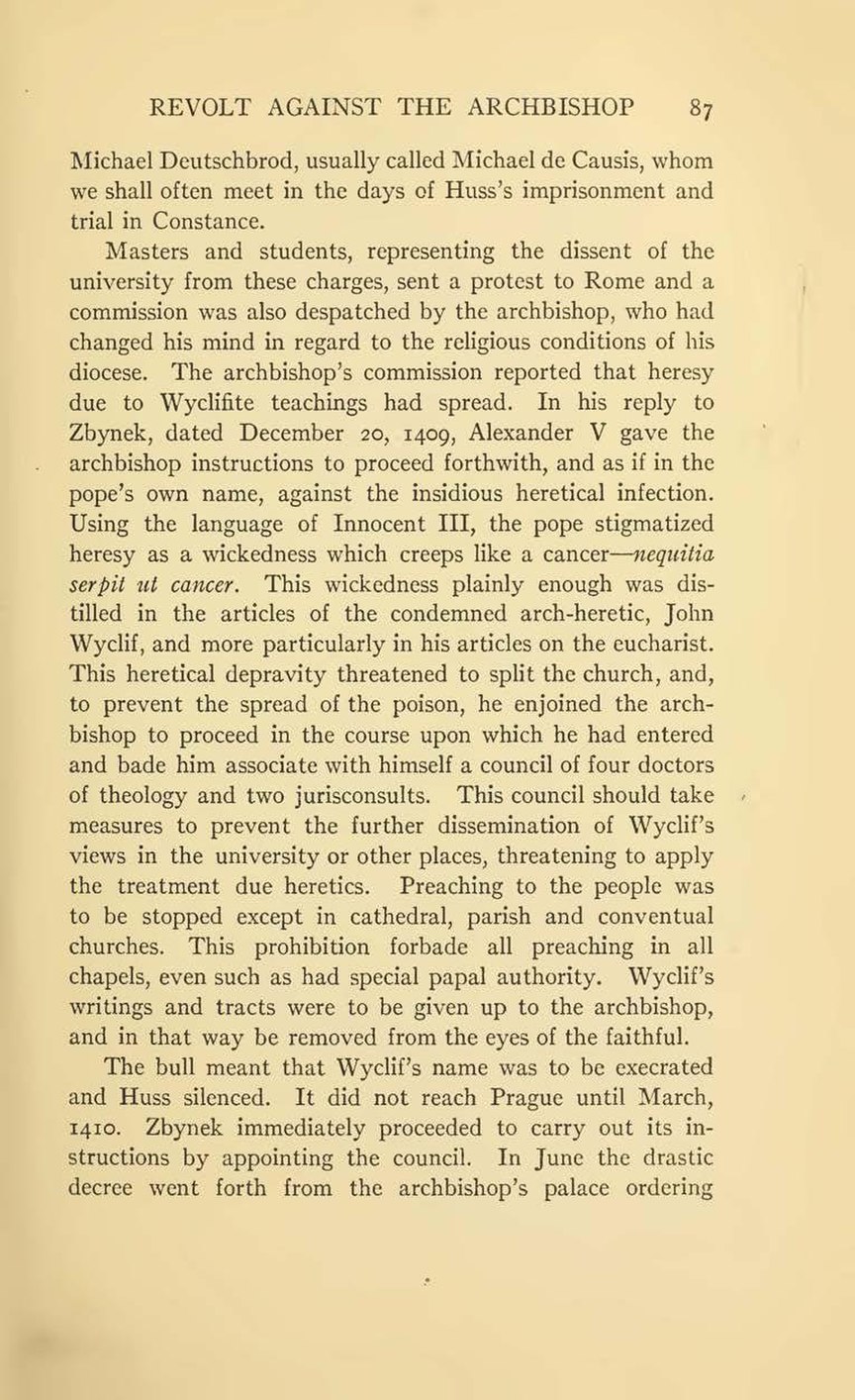Michael Deutschbrod, usually called Michael de Causis, whom we shall often meet in the days of Huss’s imprisonment and trial in Constance.
Masters and students, representing the dissent of the university from these charges, sent a protest to Rome and a commission was also despatched by the archbishop, who had changed his mind in regard to the religious conditions of his diocese. The archbishop’s commission reported that heresy due to Wyclifite teachings had spread. In his reply to Zbynek, dated December 20, 1409. Alexander V gave the archbishop instructions to proceed forthwith, and as if in the pope’s own name, against the insidious heretical infection. Using the language of Innocent III, the pope stigmatized heresy as a wickedness which creeps like a cancer—nequitia serpit ut cancer. This wickedness plainly enough was distilled in the articles of the condemned arch-heretic. John Wyclif, and more particularly in his articles on the eucharist. This heretical depravity threatened to split the church, and, to prevent the spread of the poison, he enjoined the archbishop to proceed in the course upon which he had entered and bade him associate with himself a council of four doctors of theology and two jurisconsults. This council should take measures to prevent the further dissemination of Wyclif’s views in the university or other places, threatening to apply the treatment due heretics. Preaching to the people was to be stopped except in cathedral, parish and conventual churches. This prohibition forbade all preaching in all chapels, even such as had special papal authority. Wyclif’s writings and tracts were to be given up to the archbishop, and in that way be removed from the eyes of the faithful.
The bull meant that Wyclif’s name was to be execrated and Huss silenced. It did not reach Prague until March, 1410. Zbynek immediately proceeded to carry out its instructions by appointing the council. In June the drastic decree went forth from the archbishop’s palace ordering
